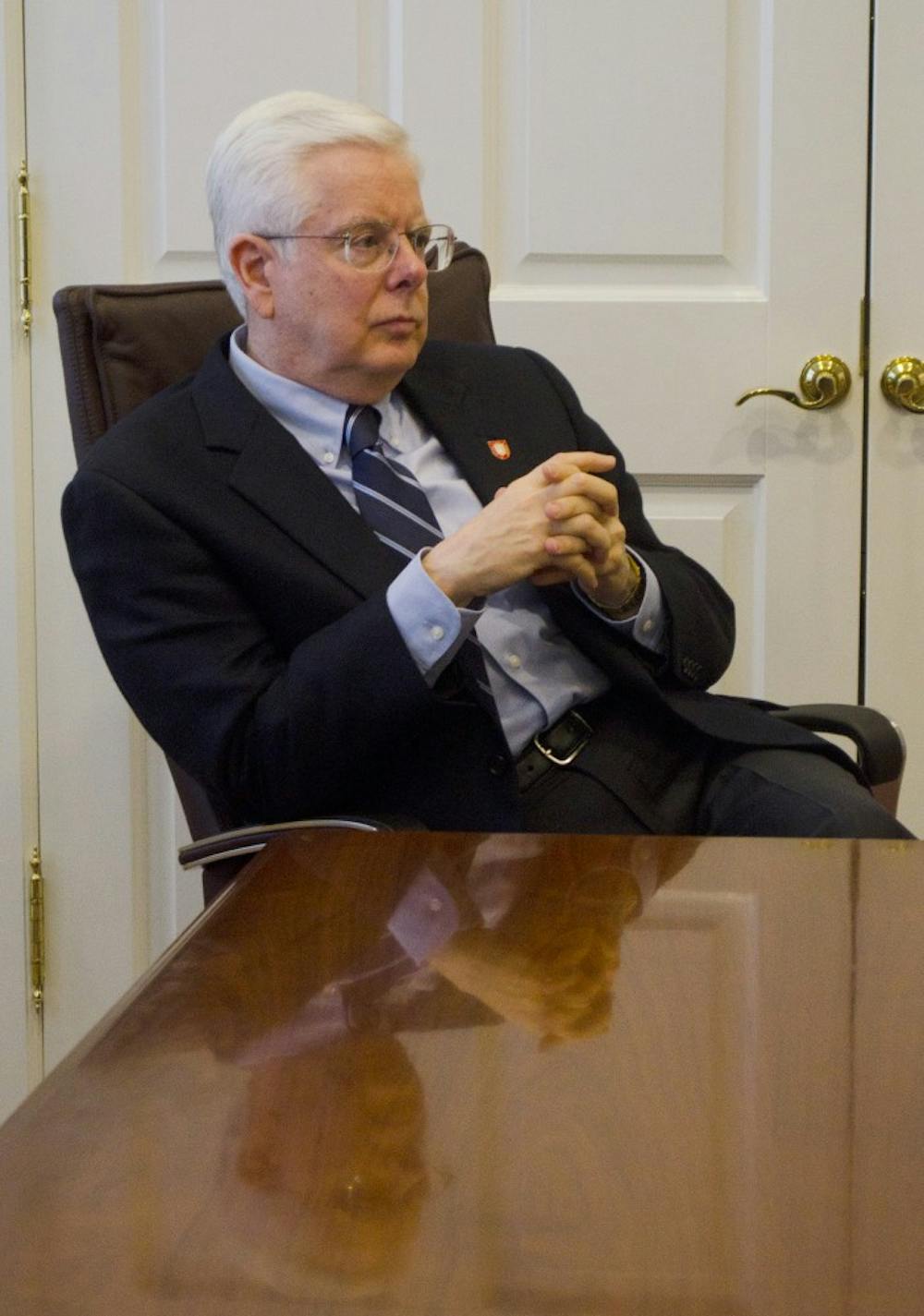Read more about the resolution here.
King said several times he was against the plan in question, which was proposed by urban planning professor Bruce Frankel.
But while he was proposing his own ideas for transparency — for more students and staff to attend the Board of Trustees meetings — he said the reason for Ferguson's resignation can be figured out.
"A person can look at what's been said and kind of figure out what's going on," King said.
He said while he sees how it's frustrating not knowing exactly why Ferguson resigned, this amount of transparency was appropriate for the situation.
"Dr. Ferguson resigned and requested it be this way," King said. "By making this open, about the president, it's likely that all personal discussions would become public."
King went on to say — again — that he was not in favor of Frankel's resolution.
Frankel wrote his plan after the sudden resignation of Ferguson and the announcement of his severance package that will be paid to him over the next year. His resolution aimed to prohibit non-disclosure contracts with future university presidents and to require a public forum in the selection.
The resolution also calls for members of the Board of Trustees to be appointed in new and different ways, rather than just by the governor.
Frankel said he worries that the current members of the Board of Trustees don't think about where student and taxpayer money goes to in the university, because they aren't affected by it.
"The Board of Trustees are not spending their lives here [at Ball State]," he said. "They don't know how it is."
King however, disagreed, stating that seven out of nine of the trustees are Ball State alumni.
"I know these people and they love this institution," he said.
Jack Hesser, Student Government Association president, was among several students who spoke out about the proposed resolution. While Hesser is for more transparency, he questioned Frankel's plan.
"Is this the best way to move forward?" Hesser asked the Senate. "I would hesitate to pass this forward at this point in time."
Hesser warned against making a rash decision by sending the resolution to King and to the Board of Trustees too soon, without redrafting it.
The Senate decided to redraft the resolution and revisit it at the next meeting.
Frankel said by creating his plan, he was sending a statement.
But he said if King and the Board of Trustees deny his resolution, then it will become a bigger statement from them.





